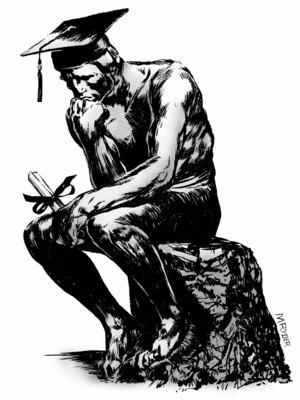- MENU
- HOME
- SEARCH
- WORLD
- MAIN
- AFRICA
- ASIA
- BALKANS
- EUROPE
- LATIN AMERICA
- MIDDLE EAST
- United Kingdom
- United States
- Argentina
- Australia
- Austria
- Benelux
- Brazil
- Canada
- China
- France
- Germany
- Greece
- Hungary
- India
- Indonesia
- Ireland
- Israel
- Italy
- Japan
- Korea
- Mexico
- New Zealand
- Pakistan
- Philippines
- Poland
- Russia
- South Africa
- Spain
- Taiwan
- Turkey
- USA
- BUSINESS
- WEALTH
- STOCKS
- TECH
- HEALTH
- LIFESTYLE
- ENTERTAINMENT
- SPORTS
- RSS
by Kim Clark

The downturn that has forced cutbacks at some of the nation's richest colleges is endangering survival of some of the poorest, including some historically black colleges and universities. But alumni, professors, and outside analysts say that the better-funded HBCUs' experience weathering hard times and helping students whom other schools have shut out may boost their appeal.
"HBCUs have survived worse things than this, like the Civil War," notes Ketema N. Paul, assistant professor of anatomy and neurobiology at the
Their pitch could prove attractive to students of all races. HBCUs' traditional students, African-Americans, are flocking to colleges in record numbers; today, 2 million plus are in college, more than double the number of 30 years ago. And a growing number of white students are enrolling in HBCUs. At several HBCUs, the majority of the student body is white.
No shortage of applicants. Some HBCUs, including
Others, like Louisiana's
HBCU grads often rave about a family feeling on campus, supportive professors, and lifelong friendships. More than two decades after he got his bachelor's from
Four questions to ask. But students and grads warn anyone considering an HBCU to temper idealism with hard facts and tough questions:
Will you graduate?
Many HBCUs have comparatively low graduation rates. Since dropping out of college is one of the most costly mistakes a student can make, it
pays to check out the graduation rate for students who match your characteristics at the
There are dramatic variations among HBCUs. Fewer than 20 percent of students at
Are you in the right program?
Many HBCUs have long had less money to spend per student than have comparable majority-white schools. Less money typically means larger classes and lower-paid faculty, and it sometimes means unsatisfactory educations.
What's the net cost?
Dozens of elite schools such as
Is the school accredited?
A struggling college can be a risky choice.
Changing times.
There are surprising racial and cultural variations among HBCUs. The H, after all, stands for historically black--not necessarily currently black. Today, for example, 86 percent of the students at
Many HBCUs are recruiting Hispanic students, international students, and, in many cases, white Americans. Joshua Packwood, who in 2008 was the first white valedictorian of Morehouse, says HBCUs aren't right for all white students nor for all black students. But Packwood says Morehouse was a great fit for him. "I was elected president of my freshman dorm," he says. "People were extremely supportive."
Packwood started studying economics when times were good; he's graduating in a recession. But four years at an often overlooked institution was a perfect preparation for Packwood's first job. He's been hired to help an investment bank find opportunities that have been overlooked.
© U.S. News & World Report
Education | The Challenge for Black Colleges